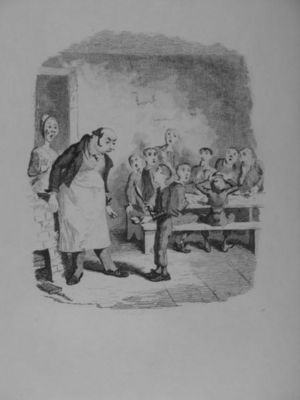What is Alternate History?
The Unchronia Alternate History site defines alternate history thus:
In an alternate history, one or more past events are changed and the subsequent effects on history somehow described. This description may comprise the entire plotline of a novel, or it may just provide a brief background to a short story. Perhaps the most common themes in alternate history are “What if the Nazis won World War II?” and “What if the Confederacy won the American Civil War?”
Other “points of departure” as these events are called include a historical personage living longer, dying sooner, or pursuing another career path, technology being developed sooner or later, and even alterations in weather or geography.
Alternate history has enjoyed great popularity in literature as of late. Yet very few if any printed works have been translated to the big or small screens. The novel Fatherland by Robert Harris, which depicts a Nazi Germany surviving into the 1960s, comes to mind as a TV movie. Also, recently, a mockumentary based on the premise of the Confederacy surviving into the 20th Century was produced.
Science fiction of the past can, according to one perspective, now be thought of as alternate history. 2001: A Space Odyssey and some of the more downbeat films from the 1970s such as Soylent Green and The Omega Man could be considered to be in these categories.
So which current works of alternate history would make good film and/or TV material?
Harry Turtledove
No discussion of alternate history would be even become not to mention complete without including the acknowledged master of the genre, Harry Turtledove. Two of his series, Southern Victory (now with ten books), and Worldwar and Colonization would make excellent if expensive to produce miniseries. The former spans over eighty years after a Confederate victory in the Civil War and includes two World Wars fought in North America between the North and South. The latter begins with an alien invasion in the midst of World War II, forcing the Allies and the Axis to combine forces to meet the new threat.
Among Turtledove’s individual works that would make great movie/TV are:
Ruled Britannia – The book starts ten years after the Spanish Armada conquers England. William Shakespeare is leading a precarious life under Spanish occupation as a playwright. He finds himself writing two plays for two very different patrons; one honors King Philip of Spain, the other Boudicca, the legendary Queen who fought the Roman invaders. In the midst of this, the Bard finds himself becoming a freedom fighter.
The Guns of the South – This work depicts a Confederate victory, but is not part of Turtledove’s massive Southern Victory series. In the book, White South African time travelers supply Robert E. Lee’s Army of Northern Virginia with AK47s. The South wins the war all right, but unexpected consequences ensue.
The Last Article – In this short story, Gandhi finds that the Nazi occupiers of India are not very impressed by non violent resistance.
Everyone Else.
Voyage by Stephen Baxter – Instead of building the space shuttle, President Nixon proposes a manned mission to Mars, which occurs in the 1980s.
The Alvin Maker Series by Orson Scott Card. Early 19th Century America where magic exists and the English settlers are divided between those who acknowledge the Lord Protector in England, those who are subjects of the King (who rules in exile), and those who revolted and created their own nation.
1901 by Robert Conroy – The Kaiser invades the United States in 1901. Shortly thereafter, Teddy Roosevelt becomes President and makes him wish he hadn’t.
The Rivers of War/The Arkansas War by Eric Flint. An alternate history of early America where Sam Houston is not as horribly wounded in a battle against Indians as he was in our history with remarkable consequences for relations with African Americans and Native Americans.
The Gettysburg Series by Newt Gingrich and William Forstchen – Lee wins at Gettysburg, which results in a shorter but more violent Civil War centered in Maryland.
The Return of William Proxmire by Larry Niven – Niven’s story about Senator Proxmire’s attempt to stop the space program by going back in time to cure Heinlein’s TB in the 1930s and how things unexpected occur is delicious.
Journey to Fusang by William Sanders – In this world where the Mongols wrecked Europe, an Irish ne’er do well finds himself having adventures in an America dominated by Aztecs, and Chinese and Muslim settlers.
The Sky People by S.M. Stirling – Both Venus and Mars are habitable and have alien civilizations. As a result, the Cold War was fought as a space race and by the 1980s, Americans, British, and Russian explorers are having adventures on a Venus with jungles, dinosaurs, and strange natives. Just as it should have been.
Children of Apollo by Mark R. Whittington – I know, shameless self promotion, but one than one person has suggested that this story of a greatly expanded Apollo program would make a great film. By the way, a story, First Woman on the Moon, set in the same universe about one of the characters from the novel is available.
Of course everyone has their own ideas, so feel free to discuss them in the comments section.

